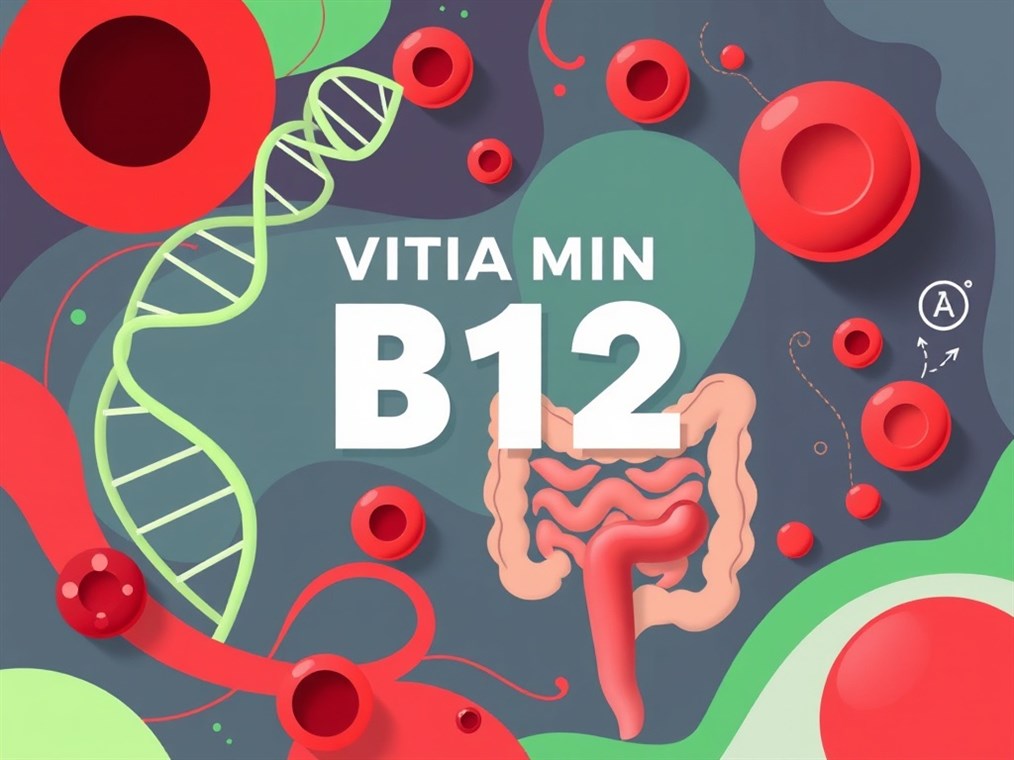Does Vitamin B12 Really Help You Poop? Let’s Get Real About B12 and Your Gut
Vitamin B12, or cobalamin if you want to get technical, is one of those essential nutrients we just can’t live without. It’s a big player in keeping our DNA in check, building red blood cells, and making sure our nervous system runs smoothly. You mostly find it hanging out in animal products, and since our bodies aren’t exactly B12 factories, we’ve got to get it through our diet. But here’s the burning question: how does this vitamin affect our digestive system, and more specifically, our poop? Well, it’s not as simple as you might think. It’s a bit of a Goldilocks situation, where too little or too much can mess with your regularity.
B12 Deficiency and Constipation: Stuck in a Rut?
Okay, so this might sound weird, but hear me out: a B12 shortage can sometimes lead to constipation. Yeah, I know, you’d think it would be the other way around! But there’s some science to back this up. I remember reading about this one case – a guy in his early 40s who was constantly backed up, and it turned out he wasn’t absorbing B12 properly. Once he started getting B12, things started moving again, if you catch my drift.
So, what’s the deal? Why does a B12 deficiency sometimes cause constipation? Well, it’s thought that B12 plays a role in keeping our autonomic nervous system happy, which is the system that controls all those automatic body functions, including, you guessed it, bowel movements. Some studies even suggest that people low on B12 experience slower digestion. Plus, if you don’t have enough B12, your red blood cells can’t deliver enough oxygen to your gut, which can lead to all sorts of unpleasantness like nausea, gas, and bloating. Who needs that?
Now, who’s most likely to be low on B12 and potentially experience the dreaded constipation? Keep an eye out if you:
- Are an older adult (especially over 75)
- Follow a vegan or vegetarian diet
- Have digestive issues like Crohn’s or celiac disease
- Have pernicious anemia or gastritis
- Have had gastrointestinal surgery
- Struggle with alcohol use disorder
B12 Overload and Diarrhea: Too Much of a Good Thing?
Alright, so we’ve covered the constipation side of things. But what about the opposite problem? Can you get too much B12? Well, sometimes, especially if you’re going overboard with supplements or injections, you might find yourself dealing with diarrhea.
Now, B12 is a water-soluble vitamin, which basically means your body is pretty good at flushing out any excess through your urine. That’s why it’s generally considered safe, even in high doses. There’s no official upper limit set for B12 intake. Still, some folks might experience tummy troubles, like diarrhea, if they’re taking in way too much.
Besides diarrhea, what else could happen if your B12 levels are sky-high? You might experience:
- Nausea and vomiting
- Headaches
- Dizziness
- Itching
- Skin rashes
- Anxiety
The Gut Microbiome: Your Gut’s Inner Ecosystem
Let’s not forget about the gut microbiome – that bustling city of bacteria living in your digestive tract. These little guys play a part in how we absorb and use B12. Some bacteria actually make B12, while others gobble it up. If your gut is out of whack, like with SIBO (small intestinal bacterial overgrowth), you might end up B12 deficient because the bacteria are competing for it. A happy, diverse gut is key for absorbing B12 properly.
Getting Your B12 Fix: Food and Supplements
So, how much B12 do you need? The recommended daily dose for adults is around 2.4 micrograms. You can find B12 in foods like:
- Meat (beef, chicken, and fish)
- Dairy (milk, yogurt, and cheese)
- Eggs
If you’re a vegan or vegetarian, you might need to get your B12 from fortified foods or supplements. B12 supplements come in pills and shots.
The Final Flush (of Knowledge)
The link between vitamin B12 and your bowel movements is a bit of a puzzle. Too little B12 might lead to constipation, while too much could cause diarrhea. Eating a balanced diet, taking care of any underlying digestive issues, and chatting with your doctor are all important for keeping your B12 levels – and your bowel movements – on track. And hey, if you’re noticing any major changes in your bathroom habits, don’t be shy about seeking medical advice. It’s always better to be safe than sorry!

